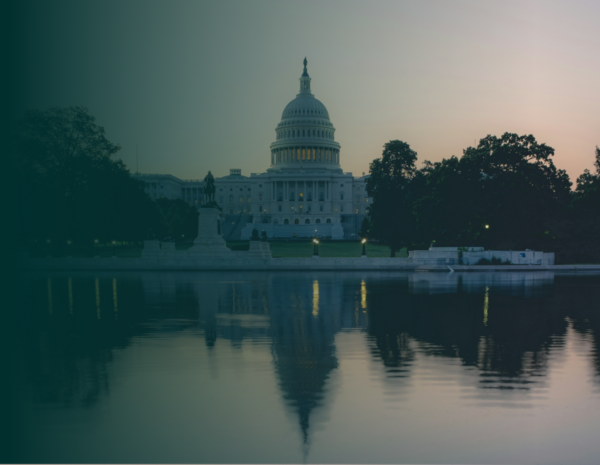At Plural, we believe in the fundamental principle that laws and regulations should be accessible to all. Our democracy should be transparent. When it is, it’s easier for everyday citizens and professionals alike to get involved and influence the democratic process.
The Pro Codes Act threatens to undermine this principle. The Act was introduced in the House in March and is now being proposed as an amendment to the National Defense Authorization Act (NDAA). If passed as Amendment 1082 to the NDAA, the Act could drastically alter how we access and interact with public laws and standards. We at Plural stand firmly against the Pro Codes Act. In this blog, we hope to shed light on the path of the bill and why it’s problematic.
Understanding the Pro Codes Act and Amendment 1082
Before we delve into why the Pro Codes Act is harmful to our democracy, we must first understand its legal and bureaucratic background.
What Are Standards Development Organizations?
To understand the Pro Codes Act, it’s helpful to first understand what a Standards Development Organization (SDO) is. According to the Office of the National Coordinator for Health Information Technology, SDOs are member-supported organizations that develop and maintain standards to meet industry needs. Their primary function is to develop, coordinate, interpret, amend, and/or reissue technical standards, helping them become more useful to the individuals and organizations who use them. Overall, they work to create and enforce uniformity across producers, consumers, government agencies, and more regarding the terminology we use to describe products, the specifications of those products, and testing and safety standards.
Most standards set forth by SDOs are voluntary and not enshrined in law. However, they’re a key (though often unseen) part of our everyday lives. They ensure the safety of the medical devices used in hospitals throughout the country and the bridges and roads we drive on each day. Everything from the food we eat to the clothes we wear to the homes and apartments we live in operates under standards established by SDOs.
SDOs and Copyright Protections
The standards set forth by SDOs are most often used by the private sector, not the government. However, many standards end up being incorporated into government regulations without the knowledge or consent of SDOs. This is where the issue of copyright comes in.
Apart from those produced by the government itself, SDO standards are not public domain. Instead, the vast majority are the intellectual property of their developers, meaning that they’re protected by copyright laws. Copyright protections are how SDOs make most of their money — standards are often paywalled or sold.
This is where the heart of the tensions between SDOs and our government lie. When the government uses a standard set forth by an SDO in a law or regulation, it becomes public domain by default as an “edict of government” — laws and regulations must be publicly accessible. However, SDOs aren’t a fan of this practice, claiming they lose revenue from standards that would otherwise be sold or accessed behind a paywall.
Case Study: The Consumer Product Safety Commission’s Safety Requirements for Extension Cords
The Consumer Product Safety Commission (CPSC) publishes, as its name indicates, safety requirements for commonly used consumer products. One consumer product that falls into this category is extension cords. According to the CPSC, extension cords meet the standards of Underwriters Laboratory (UL) publication 817. The minimum amount that the UL charges for access to publication 817 is $798 USD — and that’s for a restricted PDF that can only be opened on one computer.
With this background knowledge, we can now delve into the specifics of the Pro Codes Act and Amendment 1082.
The Pro Codes Act and Copyright Protections for SDOs
The Pro Codes Act effectively endorses the claim that SDOs can retain copyright over their standards and codes, even after they are made into law. In order to retain copyright, SDOs must make the standards and codes available through a “publicly accessible” website. But “publicly accessible” is a vague metric. Accessibility is often limited to read-only formats. They’re also subject to licensing restrictions. These factors and restrictions would make it difficult for the public to freely use and share these codes.
The Act gained bipartisan support in both the House and Senate, a rare feat in our era of political polarization. However, the House voted down their version of the bill on July 22nd, and it stagnated in the Senate. But the Pro Codes Act isn’t dead — it’s now being considered as an amendment to the NDAA.
So, the Pro Codes Act is now Amendment 1082 to the NDAA?
In short, yes. The specifics of the Pro Codes Act have been rolled into S. 2226, the annual NDAA that authorizes appropriations for the military activities of the Department of Defense in 2025. Proposed Amendment 1082 to the NDAA contains the exact same provisions set forth in the Pro Codes Act. While it might seem confusing that an Act could be “re-routed” as an amendment, this process is, unfortunately, common. Amendment 1082 is what’s considered to be a “non-germane” amendment to the NDAA, meaning it’s unrelated to the core concept of the law itself. Adding non-germane amendments to large, fundamental laws is a way to subvert and deny American citizens the opportunity to engage in a transparent, accessible democratic process.
Why the Pro Codes Act May Be Problematic
- Limited Public Access: Laws should be freely accessible to everyone. The Pro Codes Act allows SDOs to retain copyright on standards if those standards are available at no monetary cost to the public, but it allows SDOs to require users to share personal information and only provide the material in restricted formats. Furthermore, in cases where standards are not properly available to the public, the act puts the burden of proof on the public to prove that the SDO failed to comply
- Erosion of the Public Domain: The Pro Codes Act would erode the public domain by limiting access to publicly beneficial standards. The law should belong to the public. Allowing private companies to retain copyright over the law undermines democratic transparency. It’s clear that the Act prioritizes the interests of private companies over the public’s right to know and understand the laws that govern them.
- Constitutional Concerns: The U.S. Constitution implies that citizens have the right to read, share, and discuss the entire law without financial or access barriers. We as Americans have a constitutional, inalienable right to access and understand the law. The Pro Codes Act directly conflicts with this principle by imposing restrictions and costs on accessing legal standards.
Learn more about Plural’s stance on the Pro Codes Act and Amendment 1082 below.
What’s the Current Status of the Pro Codes Act and Amendment 1082?
As mentioned above, the House voted down its version of the bill on July 22nd, and it stagnated in the Senate. But the Pro Codes Act isn’t dead — it’s now being considered as an amendment to the NDAA. Amendment 1082 has been submitted for consideration, and we’re currently awaiting further action.
Plural’s Position on the Pro Codes Act and Amendment 1082
At Plural, we stand firmly against the Pro Codes Act and Amendment 1082 to the NDAA. Our position is clear: data and code standards that become part of the law should be open and freely accessible. We believe that open data fosters innovation, transparency, and public trust. It empowers citizens to understand, engage with, and influence the laws that govern them.
The Pro Codes Act stands in direct opposition to these values. Limiting access to legal standards and allowing private companies to retain copyright, creates barriers to understanding and complying with the law. This not only disadvantages Americans but also undermines the principles of an open and democratic society.
Get Involved
We urge policymakers to reconsider Amendment 1082 and its implications for public access to law. We call on our colleagues, partners, and the broader public to join us in advocating for open and accessible legal standards. The law belongs to everyone, and we must ensure it remains within the public domain.
It’s crucial to stay informed and share your concern over Amendment 1082 with your representatives. We encourage members of our community to contact lawmakers using the Electronic Frontier Foundation’s Action Center Tool.
Together, we can ensure that the laws governing us remain free, open, and accessible to all.
Get Started With Plural
At Plural, we’re committed to helping our users get and stay ahead in the public policy landscape. What exactly does that entail? With Plural, you’ll:
- Access superior public policy data
- Be the first to know about new bills and changes in bill status
- Streamline your day with seamless organization features
- Harness the power of time-saving AI tools to gain insights into individual bills and the entire legislative landscape
- Keep everyone on the same page with internal collaboration and external reporting all in one place
More Resources for Public Policy Teams
Key Benefits of AI for Lobbying & Advocacy
Want to be able to explain the benefits of artificial intelligence for lobbying and advocacy? Everyone is talking about AI. And we get it, it’s not simple to understand. But as an AI-powered organization, Plural is here to help you get the most out of advancements in AI to make your job as a policy […]
2025 Legislative Committee Deadlines Calendar
Staying on top of key deadlines is manageable in one state, but if you’re tracking bills across multiple states, or nationwide, it quickly becomes overwhelming. That’s why we created the 2025 Legislative Committee Deadlines Calendar. Stay ahead of important dates and download our calendar today. Get started with Plural. Plural helps top public policy teams get […]
End of Session Report: Florida 2024 Legislative Session
The 2024 Florida legislative session saw significant activity in the realm of insurance and financial services, reflecting key themes of consumer protection, market stability, and regulatory modernization.





